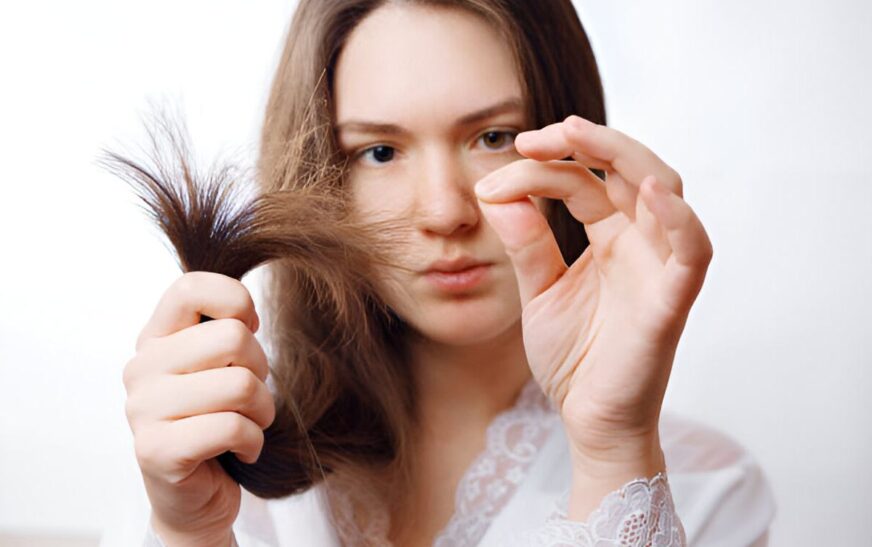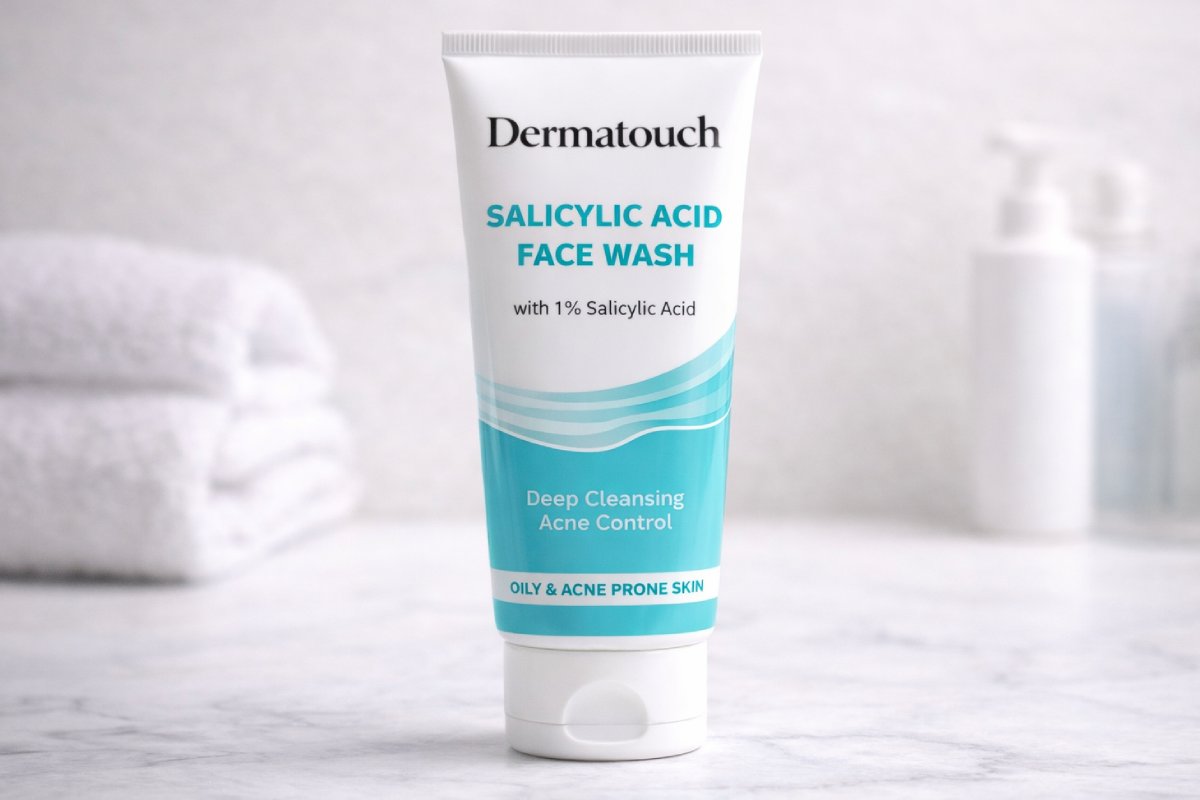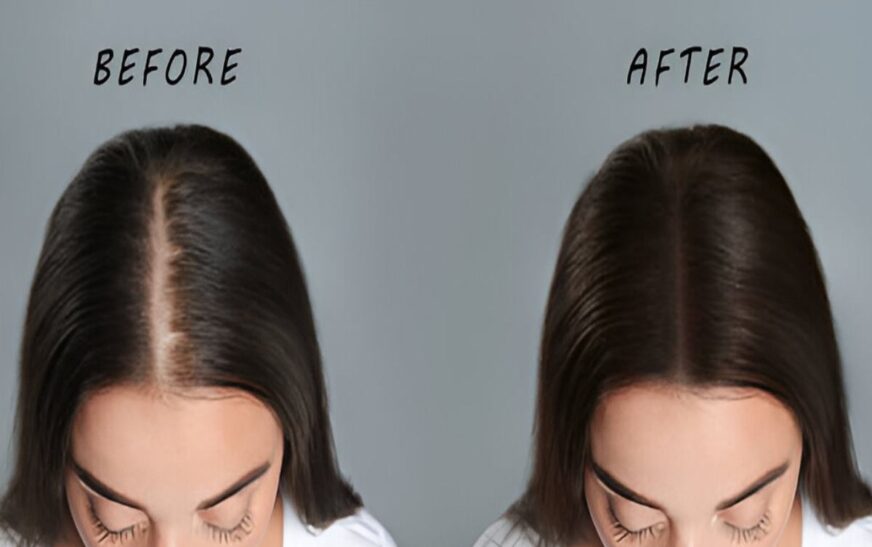Let me guess – you’ve been finding way too many broken hair pieces everywhere, right? It is on your brush, scattered across your bathroom counter, and maybe even your favorite shirt. Trust me, I get it. Hair breakage makes you want to throw your hands up and wonder if you’ll ever have the strong, healthy hair you’re dreaming of.
This is what I’ve learned after years of dealing with this myself: Easily you can stop hair breakage naturally. No need for expensive salon treatments or products packed with chemicals you can’t pronounce. The secret lies in understanding what your hair needs and giving it some TLC with simple, natural methods that work.
Ready to transform those fragile strands into stronger, healthier hair? In We’ll cover everything you need to know about naturally taking care of your hair breakage.
Understanding What Causes Hair Breakage
First, let’s talk about why your hair is breaking in the first place. Think of your hair like a delicate piece of fabric. When it gets weakened, it simply can’t handle the daily stress we put it through.
hair shaft becomes damaged and snaps along its length then Hair breakage occurs . This is different from hair falling out at the roots – that’s hair loss and a whole other beast entirely.
So what’s causing this damage? Well, if you’re like most people, you’re probably guilty of a few hair sins. Heat styling tools are major culprits here. That flat iron you use every morning? It’s frying your hair cuticles. Chemical treatments like hair dye, bleach, or perms can leave your strands feeling like straw.
However, I was surprised that even seemingly innocent things can cause breakage. Washing your hair too roughly, using the wrong brush, or even sleeping on the wrong pillowcase can create tiny fractures in your hair over time.
The good news? When you will figure out whats causing the problem, you can start fixing it.
Gentle Hair Care Techniques That Prevent Damage
Let’s get into the nitty-gritty of treating your hair like the delicate treasure it is. My biggest game-changer was completely overhauling my washing routine, and I bet it’ll make a massive difference for you, too.
Start with the water temperature. I know hot showers feel amazing, but your hair hates them—hot water strips away all the oils that keep your hair protected and flexible. Switch to lukewarm water – your hair will thank you for it.
Now, here’s something most people get wrong: you don’t need to shampoo your entire head of hair. Focus the shampoo on your scalp, where oil and product buildup happen. The suds will gently clean the rest of your hair as you rinse without over-stripping it.
Conditioner is where the magic happens for preventing breakage. Apply it from about mid-length down to your ends – these are your hair’s oldest, most fragile parts. Leave it on for at least three minutes. Seriously, set a timer. This gives the conditioner time to penetrate your hair shaft. After showering when it comes to drying try not to use towel immediately which can be very rough for wet hair. Instead, gently squeeze out excess water with your hands, then wrap your hair in a microfiber towel or even an old cotton t-shirt. Game changer, I promise.
Natural Ingredients That Strengthen Hair
Mother Nature has provided us with some incredible ingredients that can seriously strengthen your hair; the best part is that you already have most of them in your kitchen. These natural ingredients have been tried and tested, and they work.
Coconut oil is my absolute favorite for stopping hair breakage naturally. Unlike most oils on top of your hair, coconut oil penetrates the hair shaft thanks to its molecular structure. I like to apply it as a pre-shampoo treatment – warm it up slightly, massage it through your hair, and let it work its magic for 30 minutes before washing.
Aloe vera is another powerhouse ingredient that’s incredibly gentle yet effective. It has amino acids and vitamins that feed your hair follicles. You can use fresh aloe vera gel straight from the plant, or look for products with high concentrations of real aloe.
Here’s where things get interesting – protein treatments. Your hair is mostly made of protein, so adding protein back can temporarily fill in those gaps and cracks when it’s damaged. Eggs, plain yogurt, and even mayonnaise (I know, it sounds weird) can work wonders. Just remember, protein treatments are like vitamins – a little goes a long way, and too much can make your hair brittle. Use honey for your hair Mix it with olive oil for a deeply nourishing mask that leaves your strands incredibly soft and firm.
Nutrition and Lifestyle Changes for Healthier Hair
Something that took me way too long to figure out: what you eat directly affects how strong your hair grows. Your hair reflects your overall health, so if you want to stop hair breakage naturally, you’ve got to start from the inside out.
Protein is crucial since your hair is made of keratin, a protein type. Ensure you get enough from sources like fish, eggs, beans, and nuts. If you’re vegetarian or vegan, don’t worry – quinoa, lentils, and hemp seeds are fantastic plant-based options.
There are specific vitamins that your hair loves. Biotin is probably the most famous one, and for good reason – a deficiency can leave your hair weak and prone to breaking. Iron is another big one, especially for women. Low iron levels can make your hair feel like it has no strength at all.
Don’t sleep on vitamins A, C, and E either. Load up on colorful fruits and vegetables – berries, sweet potatoes, spinach, and avocados are all fantastic choices. These foods provide the antioxidants your hair needs to stay strong and resilient.
Water intake is vast too, but it’s something most people completely overlook. Dehydrated hair is brittle hair.Stress management may seem unrelated, but chronic stress can change your hair’s structure and make it more fragile. Whether it’s yoga, meditation, or just taking walks outside, find what works for you and stick with it.
DIY Hair Masks and Treatments
This is where we get to have some fun experimenting with natural ingredients. Making your own hair treatments means you know exactly what’s going on your hair, plus you can customize everything based on what your hair needs most.
My go-to strengthening mask combines mashed banana with honey and a drizzle of olive oil. Bananas are rich in silica, which helps build stronger hair, while the honey and oil provide intense moisture. It smells incredible too, which is a nice bonus.
For hair that’s been over-processed or feels really fragile, try an avocado and yogurt combination. The healthy fats in avocado help restore flexibility to damaged hair, while the lactic acid in yogurt gently removes buildup that can make hair look dull and rough.
Apple cider vinegar rinses are incredibly underrated for preventing breakage. Your hair has a natural pH level, and when that gets thrown off by products or hard water, your cuticles stay open and rough. A diluted ACV rinse (one part vinegar to three parts water) smooths everything down and makes your hair less likely to tangle and break.
Apply these masks to damp hair, focusing on the areas that need the most help – usually the mid-lengths and ends. Leave them on for 20 to 30 minutes, then rinse thoroughly with cool water to seal everything in.
Daily Habits to Reduce Hair Breakage
Sometimes it’s the little things we do daily that make the most significant difference in preventing hair breakage. These small changes might seem minor, but trust me, they add up quickly.
Your pillowcase is affecting your hair more than you realize. Cotton creates friction as you toss and turn at night, which leads to breakage and frizz. Switching to silk or satin pillowcases reduces that friction dramatically. You can also wrap your hair in a silk scarf or wear a satin bonnet – your hair will be smoother in the morning.
Let’s talk about hairstyles for a minute. Those super-tight ponytails might look sleek, but they put constant tension on your hair. Loose braids, low ponytails, or even just leaving your hair down more often can prevent a lot of mechanical damage. When you need hair ties, choose fabric-covered ones without metal parts that can snag and break your hair.
Heat styling is rugged because we all want our hair to look good, but if you can’t give it up completely, at least be smart about it. Always use a heat protectant, and turn that temperature down. Your hair doesn’t need to be fried to look good – lower heat with more time gives you the same results with way less damage.
Regular trims might seem counterproductive when trying to grow your hair, but they’re essential for preventing breakage. Split ends don’t just stop – they travel up the hair shaft and create more damage. Getting a trim every six to eight weeks keeps those damaged ends from causing bigger problems.
Finally, try to keep your hands out of your hair. I know it’s tempting to play with, twist, or constantly touch it, but all that manipulation adds to mechanical damage over time.
Conclusion
Learning to stop hair breakage naturally isn’t about finding one magic solution – it’s about creating a routine that consistently treats your hair carefully. From gentle washing techniques to nourishing natural ingredients, every small change you make builds toward stronger, healthier hair.
The key is patience. Natural methods take time to show results, but they’re so much gentler on your hair than harsh treatments. Stick with these approaches for at least six to eight weeks, and you’ll start seeing real improvements in how your hair looks and feels. Your future self will definitely thank you for taking the time to treat your hair right.
FAQs
Q1: How long does it take to stop hair breakage naturally?
You’ll typically start seeing improvements within 4-6 weeks of consistent natural care. However, if your hair is severely damaged, it might take up to 3 months to see significant changes in strength and reduced breakage.
Q2: Can natural ingredients really strengthen damaged hair?
Absolutely! Natural ingredients like coconut oil, protein treatments, and aloe vera can fill in spoiled areas of your hair cuticle and provide essential moisture. While they can’t permanently fix severe damage, they help prevent further breakage.
Q3: What’s the difference between hair breakage and hair loss?
Hair breakage happens along the hair shaft, creating short, jagged pieces, while hair loss means entire strands are falling out from the root. Breakage is usually caused by damage, while hair loss often involves hormonal or health-related factors.
Q4: How often should you do natural hair treatments for breakage?
A4: Deep conditioning treatments are great weekly, while protein treatments shall be done once or twice a month. consuming much protein can actually make your hair more brittle and prone to breaking.
Q5: Are there any natural ingredients I should avoid for hair breakage?
A5: Be careful with lemon juice or other highly acidic ingredients – they can weaken your hair if used too frequently or in high concentrations. make sure to avoid anything with alcohol, as it can dry out your hair and make breakage worse.
Q6: Can diet changes alone stop hair breakage naturally?
A6: While good nutrition is super important for hair health, diet changes alone usually aren’t enough to prevent existing breakage. You’ll get the best results by combining proper nutrition, gentle hair care practices, and natural strengthening treatments.
Don’t Miss These: How to Grow Hair Faster Naturally in a Week: Evidence-Based Methods That Work





